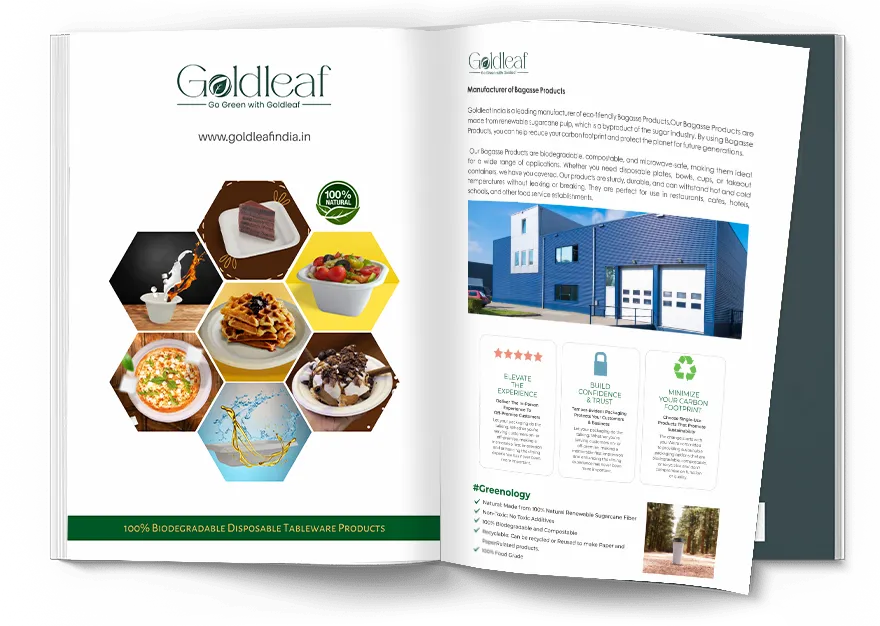Connect With Our Team
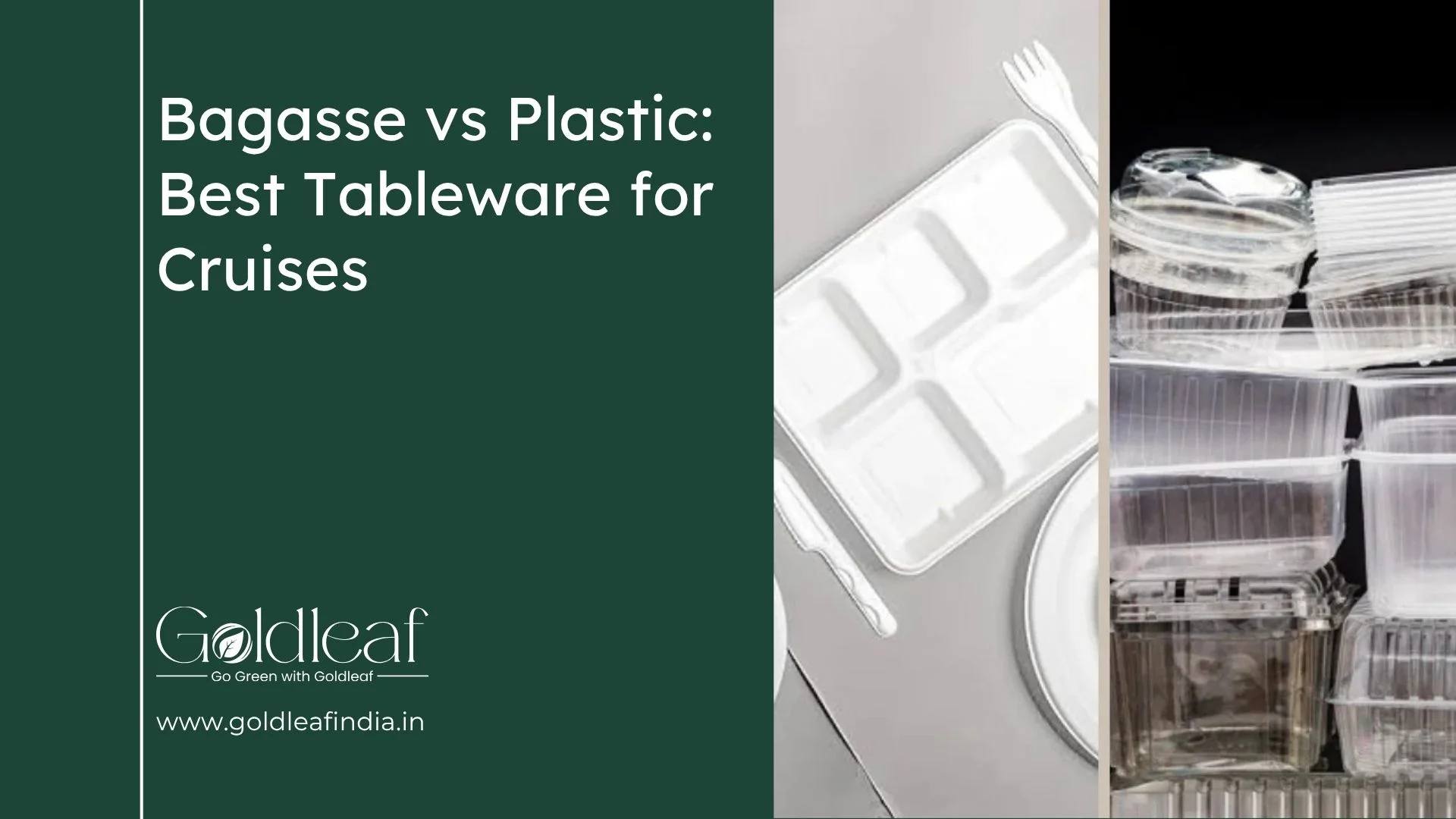
- 1258
Introduction: Setting a New Course for Eco-Friendly Cruising
With sustainability being the core of contemporary tourism, all tourist companies, including cruise operators all over the world, are revisiting all of the aspects of the onboard services, up to such a mundane task as disposable tableware. A change of the plastic and bagasse tableware may only appear as a mild decision; however, it means a lot in terms of the state of the ocean, customer satisfaction, and adherence to regulations.
Which possibility is suitable for the cruise? In this guide, we will be comparing bagasse vs plastic tableware in relation to functionality, cost implications, impact on the environment, and the reasons smart cruise liners are adopting bagasse tableware for serving cruise food.
What is Bagasse Tableware? – Nature’s Gift to Sustainable Dining
Bagasse tableware is a byproduct of the sugar industry that is manufactured using the fibrous remains that are left after conventional sugar in sugarcane stems. Rather than being discarded or burnt (that pollutes), this waste fiber is pressed into molded, eco-friendly plates, bowls, cups and clamshell containers, including popular items like sugarcane disposable plates, sugarcane bagasse bowls, and sugarcane pulp plates.
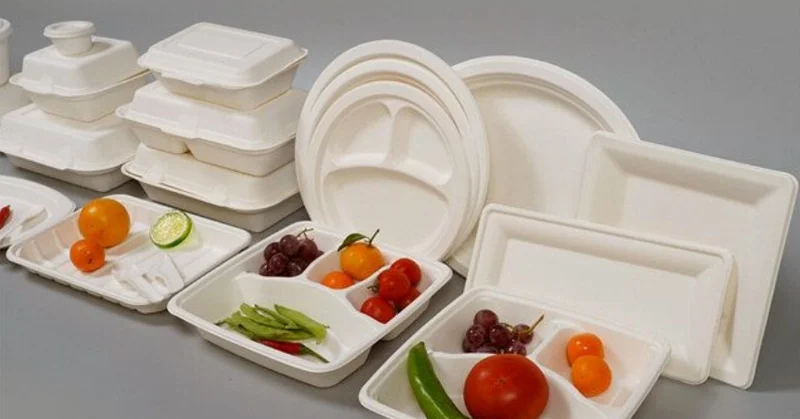
Key Benefits of Bagasse Tableware on Cruises:
• 100% Biodegradable & Compostable: Completely breaks down into natural matter within 60–90 days in composting environments, ideal for zero-waste cruises.
• Sturdy & Heat Resistant: Capable of holding hot, oily, or moist cruise food items without softening, breaking, or leaking, a perfect fit for cruise buffets and outdoor deck dining.
• Water & Grease Resistant: Handles liquids, gravies, and dressings without any soak-through, preventing messes on the dining table or deck areas.
• Chemical-Free & Safe: Contains no plastic, toxins, or artificial coatings, ensuring food safety and protecting passengers from harmful substances like BPA or microplastics.
• Supports a Natural Look: Offers an earthy, elegant appearance that complements luxury and eco-friendly cruise themes.
What is Plastic Tableware? – Traditional (But Troubled) Option
Cruise lines have taken advantage of plastic tableware (usually polypropylene [PP] or polystyrene [PS]) as it is easy to handle, less costly and hard-wearing. Nevertheless, its environmental record is becoming a matter of concern since the world is fighting against disposable plastics. This is particularly important for cruise food services that aim to impress eco-conscious travelers.
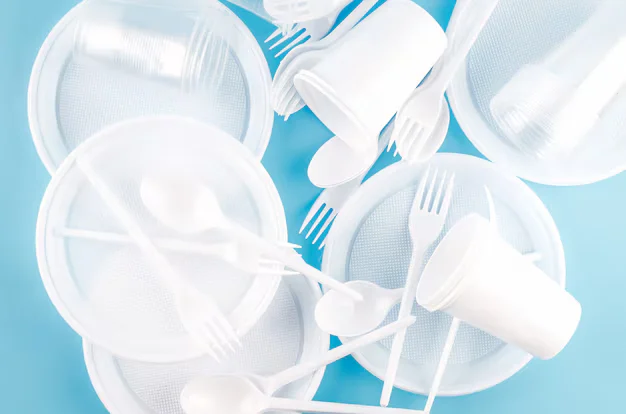
Drawbacks of Plastic Tableware on Cruises:
• Non-Biodegradable: Takes hundreds of years to degrade, contributing to growing landfill and ocean plastic problems.
• Marine Life Hazard: Often breaks down into dangerous microplastics that can harm fish, sea turtles, and whales, a major concern for cruise routes in protected marine zones.
• Restricted by Law: Banned or limited in several cruise destinations like the EU, Australia, and Caribbean ports, risking non-compliance penalties for operators.
• Unattractive for Eco-Conscious Passengers: Modern travelers favor sustainable options, but plastic tableware can damage a cruise line’s green credentials.
• Cost-Effective Initially: Offers a lower upfront price, but hidden long-term environmental and brand costs far outweigh initial savings.
Bagasse vs Plastic Tableware: A Detailed Cruise Industry Comparison
| Criteria | Bagasse Tableware | Plastic Tableware |
| Eco-Friendliness | Fully compostable, biodegradable in 60–90 days | Non-biodegradable, lingers in oceans for centuries |
| Marine Safety | Safe; breaks down naturally in the environment | Dangerous to marine life, causing ingestion and entanglement |
| Heat & Oil Resistance | Strong against hot, greasy foods; won’t leak or bend | Resistant, but may leach harmful chemicals when heated |
| Durability | Single-use but sturdy for cruise dining needs | Durable but harmful if disposed of improperly |
| Cost | Slightly higher upfront cost, but brand-enhancing | Lower cost but risks fines, bans, and reputational damage |
| Aesthetic Appeal | Natural, eco-luxury look is ideal for premium cruise dining | Cheap-looking; less suitable for luxury settings |
Why Bagasse Wins: Top Reasons for Cruises to Switch
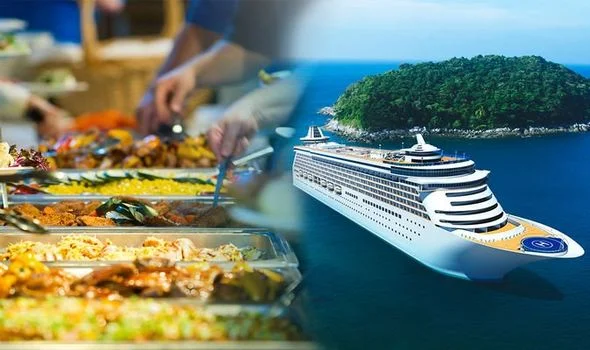
• Boosts Brand Image & Customer Loyalty: Eco-conscious tourists are taking the position of picking the cruise that advocates sustainability. Bagasse tableware will enable cruises to position themselves as green, accountable and aspiring to the future and thus be in a position to attract high-value tourists who are environmentally oriented.
• Complies with Global Plastic Bans: Strict disposable bans on single-use plastic are being imposed on the ports of Europe, the Caribbean, and Australia. Bagasse disposable tableware makes your cruise business run smoothly around the world.
• Reduces Environmental Risks: In case of an accidental blowout into the ocean, the bagasse is also biodegradable, but plastic takes decades to kill or poison marine life.
• Performs Just Like Plastic (Without the Guilt): Sugarcane tableware deals best with oily foods, soups, salads, and desserts. It will not soak or split, or disintegrate when subjected to heavy buffet usage or outdoor deck dinners.
• Supports Sustainable Tourism Goals: Reporting of environmental initiatives by the cruise lines has now become obligatory for the passengers and other stakeholders. Bagasse tableware qualifies as one of the easy and yet effective measures in achieving the zero waste and sustainable tourism certification.
Plastic Tableware Risks for Cruise Operators
• Ocean Pollution Contributor: Each cruise generates tons of waste, and plastic adds massively to ocean contamination.
• Falling Behind Competitors: Leading cruise brands are going green; those sticking to plastic risk appearing outdated.
• Negative Public Perception: Modern travelers dislike wasteful, plastic-heavy services.
• Higher Long-Term Cost: Potential fines, bans, and damage to brand reputation far outweigh the short-term plastic savings.
The Real Environmental Impact of Bagasse Tableware at Sea
Using bagasse tableware reduces:
• Marine plastic pollution risks are reduced by replacing thousands of single-use plastic plates, cups, and bowls, especially for serving cruise food.
• Carbon footprint, as bagasse tableware is derived from renewable agricultural waste such as sugarcane.
• Harm to marine life, supporting healthier ocean ecosystems along food routes.
• Waste sent to landfills or incinerators, promoting a circular economy in line with sugarcane tableware alternatives.
Performance and Guest Experience: Why Tableware Quality Matters Onboard
Dining means more than serving food to the cruise lines; it involves providing its guests with an unforgettable experience. Disposable tableware directly influences the happiness of the guests, their safety and what they think about your company regarding environmental concerns, especially when enjoying food.

Bagasse Tableware: Designed for Comfort and Performance
The bagasse tableware product is not only eco-friendly but also functional and comfortable to handle by the visitors. It facilitates a better dining experience in comparison to traditional solutions of plastic and paper.
• Sturdy and Leak-Proof: Durable to the extent that it can withstand both hot and cold cruise food without bending, warping and leaking when one is serving soups, pasta or desserts during a deck buffet.
• Soak-Resistant Surface: It is naturally oleophobic and hydrophobic to oil, moisture, and sauces, the plate or the bowl will not go soft even when it has gravies, curries, or seafood dishes often served in cruise food menus.
• Heat & Cold Safe: Microwaveable, freezer-safe, and suitable for reheating or storing leftovers, guests enjoy worry-free use without risk of softening or cracking.
• No Flavor Transfer: Unlike some paper or low-grade plastic products, bagasse tableware does not impart flavors, odors, or chemical tastes into food, maintaining dish authenticity and taste.
• Elegant Appearance: Its rustic, natural texture elevates the onboard dining aesthetic, ideal for cruises promoting luxury, eco-friendly, or organic cruise food experiences.
Explore Bagasse Tableware Collection
Plastic Tableware: Reliable But Problematic
Plastic tableware has long been the default for cruise food dining due to its strength and affordability. However, the guest experience may suffer due to environmental and safety concerns.
• Durable Yet Controversial: While strong and moisture-resistant, plastics may leach harmful chemicals (like BPA) when exposed to heat, raising health concerns among passengers.
• Environmental Discomfort: Eco-conscious travelers may view plastic disposables negatively, associating them with ocean pollution, a growing awareness that can affect guest satisfaction.
• No Microwave Safety: Most plastic plates and cups are not microwave-friendly and can deform or release toxins when heated.
• Uninspired Look: Plastic lacks the premium, natural appearance of sugarcane bagasse tableware, making it less desirable for luxury or themed cruises focused on sustainability and fine dining.
Best Bagasse Tableware Supplier for Cruises – Goldleaf
In reference to high-quality and dependable bagasse tableware, there is no doubt that Goldleaf is a major supplier to the rest of the world, with the cruise operators. They offer strong, sustainable, and stylish products like sugarcane disposable cup, sugarcane bagasse bowls, and sugarcane pulp plates, which makes their products effective in satisfying the needs of cruise food services.
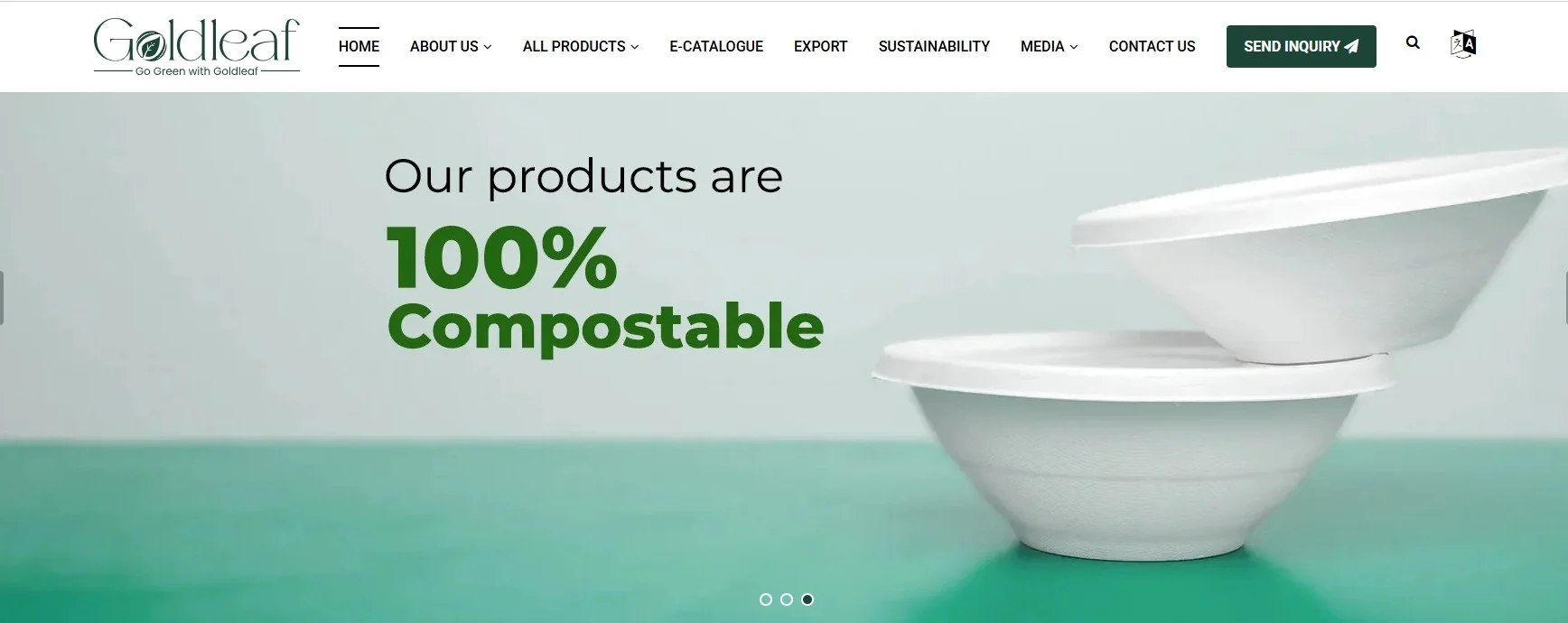
Why Choose GoldLeaf?
• 100% Compostable & Biodegradable: Made from pure sugarcane fiber with no plastic coating safe for marine environments.
• Wide Product Range: Plates (round & rectangular), bowls (round & square), clamshell containers, and tea/coffee cups with lids ideal for varied food requirements.
• Leak-Proof & Durable: Withstands hot, greasy, and liquid cruise food without bending or soaking.
• Enhances Cruise Brand Value: Perfect for cruise lines promoting sustainability and eco-luxury experiences with sugarcane tableware.
Conclusion
Conclusively, bagasse tableware is better than plastic in cruise dining experiences since it is stronger, resistant to heat, and greener than plastic without undermining the guest experience. Not only does it fulfill the objectives of global sustainability, but it also attracts brand-building advantages among other scrupulous travellers. As long as you work with trusted suppliers such as Goldleaf, cruise operators can also transition to using compostable sugarcane bagasse plates, sugarcane pulp plates, and sugarcane disposable bowl with confidence and help future-proof their cruising journey to safer oceans, healthier guests, and a sustainable cruising operation for cruise food services.
- Products
- Bowl
- Clamshell
- Compartment Plate
- Plate
- Tea Cup
© 2024 , Goldleaf ,
All rights reserved.
Made & Managed by Lightlink Solutions



